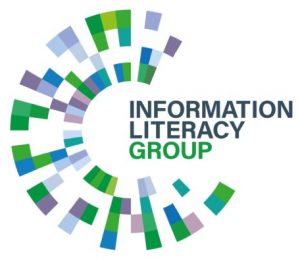 Blog post by Geoff Walton, Stéphane Goldstein and Emma Coonan, on behalf of the CILIP Information Literacy Group
Blog post by Geoff Walton, Stéphane Goldstein and Emma Coonan, on behalf of the CILIP Information Literacy Group
False news is everywhere in this post-truth world – We say, don’t be taken in; it’s time to question, question, question everything you read, see and hear.
The most popular new word for 2016 is “post-truth” (according to the Oxford Dictionaries – BBC, 2016). This word has come very much to the fore, especially on the crest of the political shockwaves that were Brexit and Trump’s victory in the presidential elections. For those that have not heard of this new term, ‘post-truth’ is described as claims that feel right even if they have no actual basis in fact and are what people want to believe because they fit attitudes they already have. But is this era of ‘post-truth’ actually anything new? Perhaps not. Edward Bernays – the father of public relations – originally worked in propaganda for the US in WW1 and cottoned on to the use of information to manipulate the general public; Nazi Germany’s minister of propaganda, Joseph Goebbels, grasped it too. Shakespeare understood the benefits of appealing to people’s emotions rather than reason – think of Mark Antony’s speech in response to Brutus’s well-constructed argument, ‘Friends, Romans, countrymen, lend me your ears; I come to bury Caesar, not to praise him’, which goes on to praise the assassinated Caesar and win the propaganda argument.
We guess, however, that the major difference is that the Internet and particularly social media are the great amplifiers (Claire McGuinness has underlined this in a great recent blog post). This has spawned many new ways of distortion and manipulation, which can be achieved almost instantaneously and increasingly via automation. This week’s New Scientist talks of ‘motivated reasoning’, which suggests that when we are presented with facts that contradict our beliefs, we find clever ways of dismissing them (Jones, 2016, p.29). This is exacerbated by the opaque algorithms deployed by the likes of Facebook, which prioritise information according to user preferences, thereby creating the ‘echo chambers’ that reinforce our connections to people who have similar views, interests and biases. In other words, people don’t look for what is ‘right’ but for what confirms their beliefs or prejudices; social media extends this action in the online world.
Perhaps what is even more troubling is the growth of ‘false news’. Unlike Bernays, Goebbels and Mark Antony, the most fascinating – and most chilling – thing about fake news is that it’s generally not propaganda. Clickbait such as the ubiquitous ‘related content’ links at the end of news stories is not politically but financially motivated, yet it builds with the same terrifying cynicism on motivated reasoning, the human desire to believe that the world is shaped to our way of thinking. Reading about how and why this stuff gets put together, and how it acts on people, is universally fascinating; it’s all about us – and how we get manipulated. There’s just one problem: it’s not exposés of clickbait, or investigations into false news, that will appear in your related content.
What might be done to address the challenge? Possible solutions have included looking at the responsibility of social media providers, for instance through editorial controls or making algorithms more transparent. Such approaches are focused on the supply side, i.e. what can the information mediators do? But what about confronting the challenge from the demand side, that is, influencing the behaviour of consumers, creators and propagators of information? This is a big challenge, one that asks every one of us, as social media users, to assess everything we read, to ask ourselves why are we being given this information, where is it coming from, who are its authors, are they experts? If it is too good to be true then it probably doesn’t stack up. If we don’t want to get taken in by this, be it the grandiose statement of a politician or the suspicious claims of a fridge manufacturer, we must question, question, question. We might like to have a good dig around for other people talking about the same thing or indeed other fridge manufacturers. What are they saying? And we mustn’t forget to share what we have found out; our friends, community or colleagues might all benefit from what we’ve discovered.
Oh, and there is a name for this questioning, critical approach; it’s called information literacy. And, in a ‘post-truth’ world, it may be time for information literacy to step up, shout louder, and strengthen its stance on facts, falsity and promoting reason. Lane Wilkinson takes it further and argues that: “If we’re going to address the post-truth world as librarians, we need to defend the idea of truth”. Pass the word around.
Geoff Walton
Stéphane Goldstein
Emma Coonan
On behalf of the CILIP Information Literacy Group
References
BBC (2016). Post-truth declared word of the year by Oxford Dictionaries. http://www.bbc.co.uk/news/uk-37995600
Griffith, Erin (2014). How Taboola and Outbrain are battling a bad reputation … and each other. Fortune. http://fortune.com/2014/08/18/taboola-outbrain-battle-bad-reputation-each-other/
Jones, Dan. (2016). Seeing reason: human brains skew facts. How can we change our minds, asks Dan Jones. New Scientist, 232 (3102), pp.29-32.
McGuinness, Claire (2016). Bursting the Filter Bubble: pro-truth librarians in a post-truth world. Libfocus. http://www.libfocus.com/2016/11/bursting-filter-bubble-pro-truth.html?m=1
Sydell, Laura (2016). We tracked down a fake-news creator in the suburbs. Here’s what we learned. All Tech Considered. http://www.npr.org/sections/alltechconsidered/2016/11/23/503146770/npr-finds-the-head-of-a-covert-fake-news-operation-in-the-suburbs
Wilkinson, Lane (2016). Post-truth and information literacy. Sense and Reference: a philosophical library blog. https://senseandreference.wordpress.com/2016/12/01/post-truth-and-information-literacy

